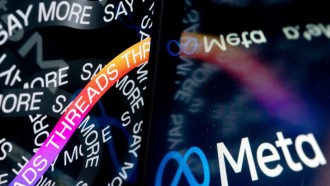Your mind drifted off into a dream world created by the imagination and fueled by the subconscious, but something forces awake. As you try to get your feet back in reality, you feel confused and severely disorientated, much like being drunk. A new study says that this feeling of "sleep drunkenness" occurs in more people than experts previously thought.
Those who suffer from being sleep drunk, officially known as confusional arousal, have a hard time fully waking up. And once the sleeper is awakened, they feel severely disorientated. Sleep drunkenness is accompanied by confusion, strange or violent behavior and even amnesia about the events that occur after waking. Being forced awake usually triggers these episodes.
For example, you are fast asleep and suddenly awakened by an alarm clock. As you jolt out of sleep in a disorientated state of mine, you may answer the phone instead of turn off the alarm.
"These episodes of waking up confused have received considerably less attention than sleepwalking even though the consequences can be just as serious," says study author Dr. Maurice Ohayon.
Researchers at Stanford University School of Medicine interviewed 19,136 people over the age of 18 about their sleeping habits to establish if they suffered from any of the sleep drunk symptoms. The participants were asked about whether or not they were diagnosed with mental illness because sleep drunkenness is often linked to other sleep and mental disorders. They were also asked about medication since some could also cause disorientation.
The study published in the journal Neurology found that 15 percent of the participants experienced being sleep drunk in the last year. Half of those participants reported experiencing one sleep drunk episode a week.
Researchers found that sleep drunkenness could be a red flag for other sleep problems. 84 percent of those who reported sleep drunkenness had another sleep disorder, a mental health disorder or were on drugs like antidepressants.
Alcoholics and those with mental disorders like depression, bipolar disorder, anxiety and post-traumatic stress disorder were more likely to suffer from being sleep drunk. Less than more percent of participants who suffered from being sleep drunk had no known cause.
Researchers say the instant response when we wake up parallels the way animals act when responding to a potential threat. "A similar protective mechanism probably exists in humans," Ohayon says. "Therefore techniques used for sudden awakenings in the morning (for example alarm clock, telephone ringing) can trigger this reaction and provoke confusional arousals," he adds.
Researchers found that being sleep drunk was linked to getting too much or too little sleep. More research will need to be done to find why the condition affects the general population and how it can be treated.








